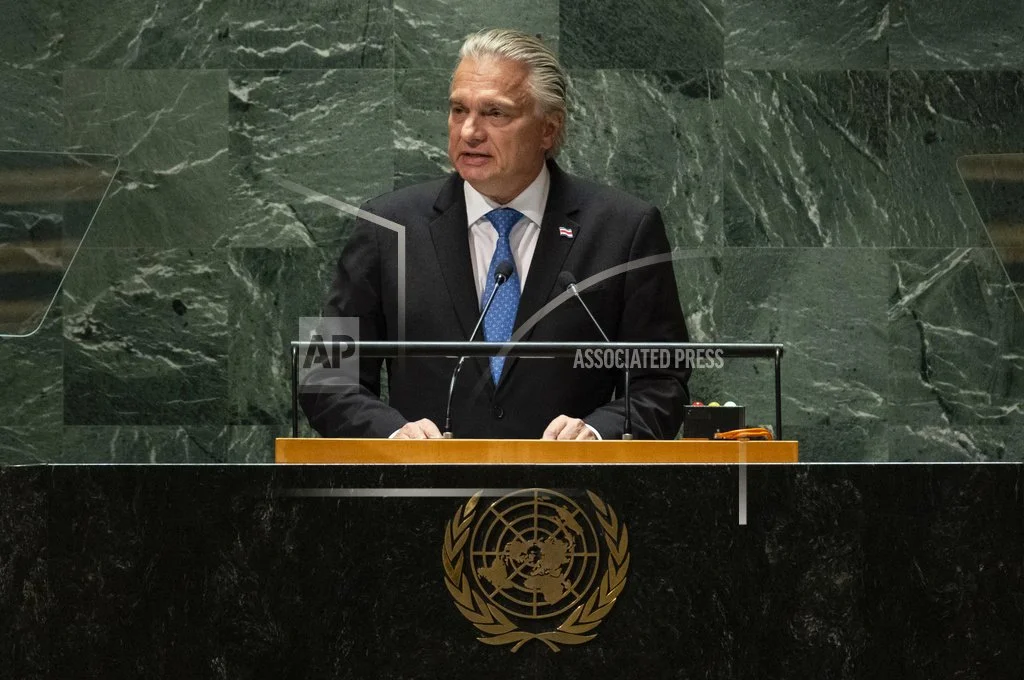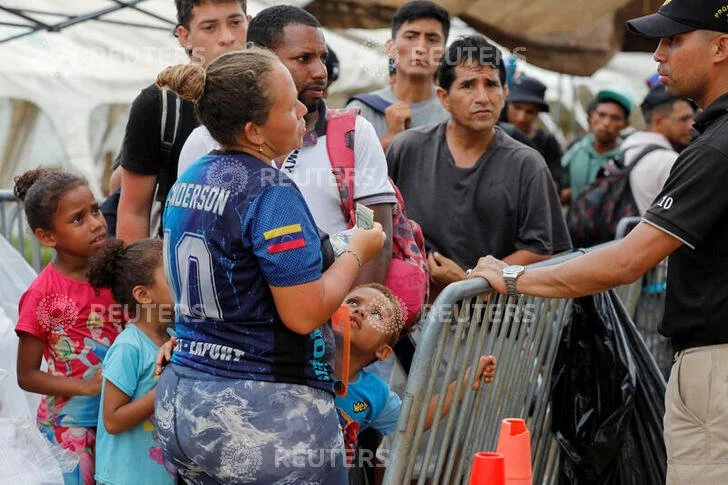Costa Rica Revokes Visa Exemption For Honduran Nationals
Costa Rica Minister for Foreign Affairs Arnoldo Ricardo Andre Tinoco addresses the 78th session of the United Nations General Assembly, at United Nations headquarters. Friday, Sept. 22, 2023. Image Source: AP Photo/Craig Ruttle
On Oct. 6, Costa Rica announced it would revoke its visa exemption for Honduran nationals. Costa Rica is the first Central American country to establish this requirement for Honduran nationals. This policy shift incited a mixture of surprise and anger among Honduran officials and the public, and could potentially strain diplomatic relations in the region.
Costa Rica had originally announced the revocation last week. Honduran Foreign Minister Eduardo Enrique Reina remarked that the measure was being applied without prior notice, emphasizing the necessity for a transitional period. In response to these concerns, Costa Rica postponed the implementation of the visa requirement, which is now officially in effect for both countries as of Tuesday, Oct. 11.
Once their visa is stamped, Honduran nationals will have a sixty-day window to enter Costa Rica. From that point on, they will be allowed to remain in the country for thirty days, though they may extend their stay to ninety days if eligible.
The visa requirement announcement comes shortly after Costa Rica declared a state of emergency due to the surge of migrants passing through to the United States. In the month of August alone, over 84,490 people entered the country in an attempt to reach the United States.
Migrants heading to the U.S. wait to board a bus that will take them to the border with Costa Rica at the Migrants Reception Station in Lajas Blancas, Darien province, Panama, September 23, 2023. Image source: REUTERS/Aris Martinez
Last year, Costa Rica also revoked visa exemptions for Venezuelan, Cuban, and Nicaraguan nationals on the same premise of migration concerns.
Costa Rican Minister of Foreign Affairs Arnoldo Ricardo André Tinoco has not commented on this possible link between the new visa regime and the surge in migration. He has simply acknowledged that the visa requirement for Honduran nationals was “adopted at an opportune moment...for security reasons.”
The Honduran Vice Chancellor Antonio Garcia expressed his “sadness” upon hearing this news, and stated that these “measures were unusual for Central American countries.”
Since then, Foreign Minister Tinoco clarified to his Honduran counterpart that the visa requirement aims to limit the influx of “criminal groups” and "Honduran Hitmen” to the country. Costa Rican government data states that 25,900 Hondurans entered the country in the last year, though only 353 have requested asylum. Most Hondurans who arrive in Costa Rica do not stay.
Honduras' decision to revoke visa exemptions for Costa Rican nationals reflects the country's adherence to the principle of reciprocity, according to Honduran officials. It also echoes the Honduran government’s discontent with Costa Rica’s revocation and underscores its commitment to maintaining a sense of fairness in bilateral relations.
The sudden policy change has raised concern among the public about its potential impact on the movement of people and goods, trade relations between the two countries, and tourism. It has also created uncertainties about the future of bilateral cooperation.
The diplomatic tensions hint at the changing dynamics in Central America. Although countries therein have long fostered cooperative ties, this incident highlights the fragility of bilateralism. Regional organizations like the Central American Integration System (SICA) may encounter new difficulties in upholding their members' unity and promoting cooperation.


